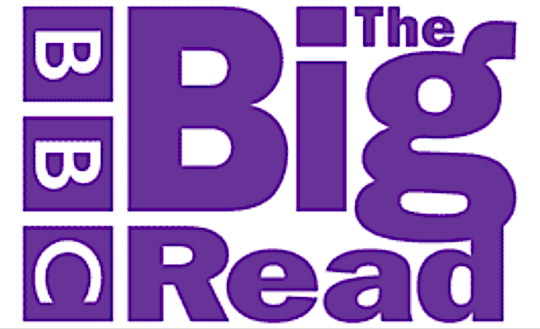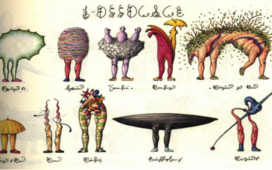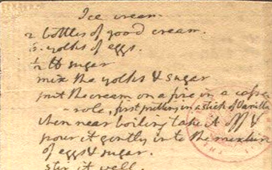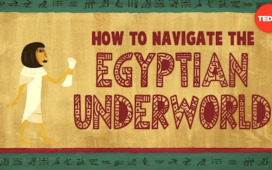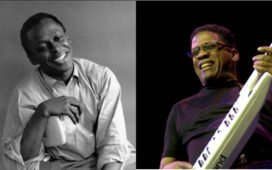In the eighteenth century, the readers of Europe went mad for epistolary novels. France had, to name the most sensational examples, Montesquieu’s Lettres persanes, Rousseau’s Julie, and Laclos’ Les Liaisons dangereuses; Germany, Goethe’s Die Leiden des jungen Werther and Hölderlin’s Hyperion. The English proved especially insatiable when it came to long-form stories composed entirely out of letters: soon after its publication in 1740, Samuel Richardson’s Pamela — by some reckonings, the first real English novel — grew into an all-encompassing cultural phenomenon, which Richardson himself outdid eight years later with Clarissa. Alas, when the BBC surveyed the public two and three-quarter centuries later to determine the most beloved novel in the U.K., neither of those books even made the top 100.
With the possible exceptions of Bram Stoker’s Dracula (#104) and Mary Shelley’s Frankenstein (#171) — two works of nineteenth-century horror that make use of a variety of textual forms, letters included — the rankings produced by “The Big Read” included practically no epistolary novels. (Nor did eighteenth-century works of any other kind make the cut.) What happened to the literary genre that had once caused such a national craze? For one thing, Jane Austen happened: novels like Pride and Prejudice, Emma, and Persuasion revealed just how rich a story could become when its narration breaks away from the pen of any character in particular, gaining the ability to know more about them than they know about themselves. Not for nothing did all three of those books perform well on The Big Read the better part of 200 years after they came out; Pride and Prejudice even came in at number two.
The top spot was taken by J. R. R. Tolkien’s Lord of the Rings trilogy: an understandable outcome, given not just its ambition but also its massive and enduring popularity and influence. Still, one does wonder if Peter Jackson’s blockbuster film adaptations, released in the years leading up to the poll, might have had something to do with it. Similar suspicions adhere to the likes of Captain Corelli’s Mandolin (#19), American Psycho (#185), The Beach (#103), and Bridget Jones’s Diary (#75), all of which provided the basis for major motion pictures around the turn of the millennium. Umberto Eco’s The Name of the Rose, one of a scattering of translated novels to make the list, also got the Hollywood treatment, but it’s worth remembering that the book itself sold so well that its English translator could use his royalties to build an addition to his Tuscan villa called the “Eco Chamber.”
Apart from Austen, the other novelists with multiple books on The Big Read’s top 100 include Stephen King, who also has three; Thomas Hardy, with four; and Charles Dickens, with seven. Those are, in any case, some of the novelists for adults. The abiding British appreciation for children’s literature shows in the high rankings of Roald Dahl, who secured a great many votes with even lesser works like The Twits and Danny, the Champion of the World; J. K. Rowling, who would have benefited from the height of Harry Potter mania in any case; and the prolific Dame Jacqueline Wilson, whose fourteen novels on the list place her second only to Sir Terry Pratchett’s fifteen. It could be that his comic-fantasy sensibility, saturated with both the outlandish and the mundane, resonated uniquely with the British psyche. Or, as Pratchett himself says in the BBC’s Big Read television broadcast, “it could just be that I’m quite popular.”
In total, more than 750,000 readers participated in the Big Read poll. Find readers’ top 100 books below:
1. The Lord of the Rings, JRR Tolkien
2. Pride and Prejudice, Jane Austen
3. His Dark Materials, Philip Pullman
4. The Hitchhiker’s Guide to the Galaxy, Douglas Adams
5. Harry Potter and the Goblet of Fire, JK Rowling
6. To Kill a Mockingbird, Harper Lee
7. Winnie the Pooh, AA Milne
8. Nineteen Eighty-Four, George Orwell
9. The Lion, the Witch and the Wardrobe, CS Lewis
10. Jane Eyre, Charlotte Brontë
11. Catch-22, Joseph Heller
12. Wuthering Heights, Emily Brontë
13. Birdsong, Sebastian Faulks
14. Rebecca, Daphne du Maurier
15. The Catcher in the Rye, JD Salinger
16. The Wind in the Willows, Kenneth Grahame
17. Great Expectations, Charles Dickens
18. Little Women, Louisa May Alcott
19. Captain Corelli’s Mandolin, Louis de Bernieres
20. War and Peace, Leo Tolstoy
21. Gone with the Wind, Margaret Mitchell
22. Harry Potter And The Philosopher’s Stone, JK Rowling
23. Harry Potter And The Chamber Of Secrets, JK Rowling
24. Harry Potter And The Prisoner Of Azkaban, JK Rowling
25. The Hobbit, JRR Tolkien
26. Tess Of The D’Urbervilles, Thomas Hardy
27. Middlemarch, George Eliot
28. A Prayer For Owen Meany, John Irving
29. The Grapes Of Wrath, John Steinbeck
30. Alice’s Adventures In Wonderland, Lewis Carroll
31. The Story Of Tracy Beaker, Jacqueline Wilson
32. One Hundred Years Of Solitude, Gabriel García Márquez
33. The Pillars Of The Earth, Ken Follett
34. David Copperfield, Charles Dickens
35. Charlie And The Chocolate Factory, Roald Dahl
36. Treasure Island, Robert Louis Stevenson
37. A Town Like Alice, Nevil Shute
38. Persuasion, Jane Austen
39. Dune, Frank Herbert
40. Emma, Jane Austen
41. Anne Of Green Gables, LM Montgomery
42. Watership Down, Richard Adams
43. The Great Gatsby, F Scott Fitzgerald
44. The Count Of Monte Cristo, Alexandre Dumas
45. Brideshead Revisited, Evelyn Waugh
46. Animal Farm, George Orwell
47. A Christmas Carol, Charles Dickens
48. Far From The Madding Crowd, Thomas Hardy
49. Goodnight Mister Tom, Michelle Magorian
50. The Shell Seekers, Rosamunde Pilcher
51. The Secret Garden, Frances Hodgson Burnett
52. Of Mice And Men, John Steinbeck
53. The Stand, Stephen King
54. Anna Karenina, Leo Tolstoy
55. A Suitable Boy, Vikram Seth
56. The BFG, Roald Dahl
57. Swallows And Amazons, Arthur Ransome
58. Black Beauty, Anna Sewell
59. Artemis Fowl, Eoin Colfer
60. Crime And Punishment, Fyodor Dostoyevsky
61. Noughts And Crosses, Malorie Blackman
62. Memoirs Of A Geisha, Arthur Golden
63. A Tale Of Two Cities, Charles Dickens
64. The Thorn Birds, Colleen McCollough
65. Mort, Terry Pratchett
66. The Magic Faraway Tree, Enid Blyton
67. The Magus, John Fowles
68. Good Omens, Terry Pratchett and Neil Gaiman
69. Guards! Guards!, Terry Pratchett
70. Lord Of The Flies, William Golding
71. Perfume, Patrick Süskind
72. The Ragged Trousered Philanthropists, Robert Tressell
73. Night Watch, Terry Pratchett
74. Matilda, Roald Dahl
75. Bridget Jones’s Diary, Helen Fielding
76. The Secret History, Donna Tartt
77. The Woman In White, Wilkie Collins
78. Ulysses, James Joyce
79. Bleak House, Charles Dickens
80. Double Act, Jacqueline Wilson
81. The Twits, Roald Dahl
82. I Capture The Castle, Dodie Smith
83. Holes, Louis Sachar
84. Gormenghast, Mervyn Peake
85. The God Of Small Things, Arundhati Roy
86. Vicky Angel, Jacqueline Wilson
87. Brave New World, Aldous Huxley
88. Cold Comfort Farm, Stella Gibbons
89. Magician, Raymond E Feist
90. On The Road, Jack Kerouac
91. The Godfather, Mario Puzo
92. The Clan Of The Cave Bear, Jean M Auel
93. The Colour Of Magic, Terry Pratchett
94. The Alchemist, Paulo Coelho
95. Katherine, Anya Seton
96. Kane And Abel, Jeffrey Archer
97. Love In The Time Of Cholera, Gabriel García Márquez
98. Girls In Love, Jacqueline Wilson
99. The Princess Diaries, Meg Cabot
100. Midnight’s Children, Salman Rushdie
Related content:
800 Free eBooks for iPad, Kindle & Other Devices
The 10 Greatest Books Ever, According to 125 Top Authors (Download Them for Free)
The 100 Best Novels: A Literary Critic Creates a List in 1898
Based in Seoul, Colin Marshall writes and broadcasts on cities, language, and culture. His projects include the Substack newsletter Books on Cities and the book The Stateless City: a Walk through 21st-Century Los Angeles. Follow him on the social network formerly known as Twitter at @colinmarshall.

